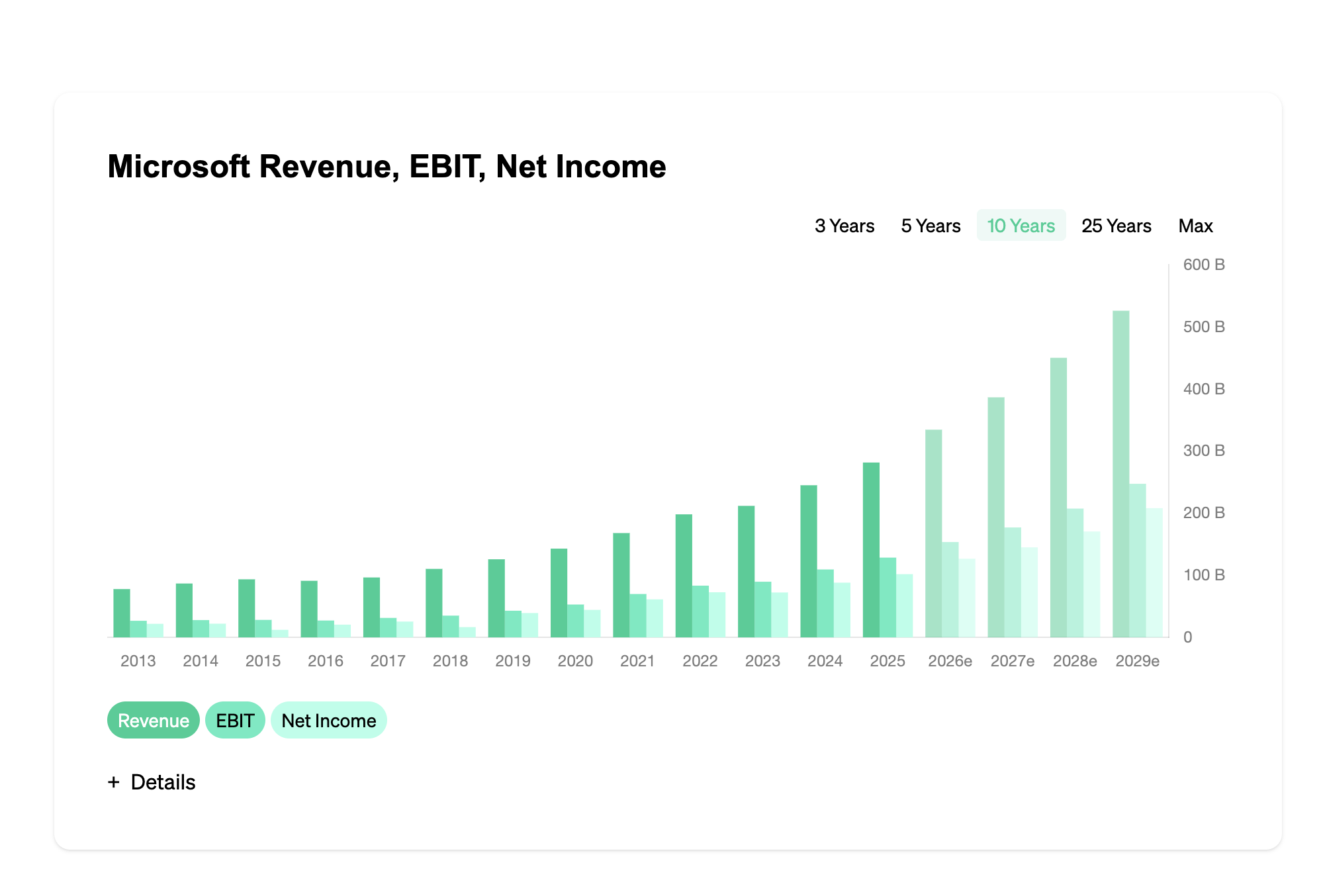Automation
Definition und Erklärung
TL;DR – Kurzdefinition
Zu den FAQs →Automation: Automation, or Automatisierung in German, refers to the process of utilizing technology and software programs to perform tasks and operations in a systematic and autonomous manner, without the need for human intervention. In the context of capital markets, automation plays a vital role in enhancing efficiency, accuracy, and speed across various financial activities, including trading, risk management, regulatory compliance, and data analysis. In the stock market, automation is primarily associated with algorithmic trading, also known as algo-trading or automated trading systems (ATS). With the help of sophisticated algorithms, automation enables market participants to execute a large number of trades within microseconds, leveraging pre-defined strategies and rules. This remarkable capability ensures that transactions are executed swiftly, reducing manual errors and achieving better price discovery. Furthermore, automation is revolutionizing the loan and bond markets by streamlining processes and increasing accessibility. Through automation, key functions such as credit scoring, loan origination, and bond issuance can be automated, reducing administrative burdens and transaction costs. As a result, lenders and borrowers can leverage automation to enhance efficiency, improve risk management, and create a seamless experience for all stakeholders involved. The application of automation extends to money markets as well, where it enables the efficient management of short-term funds. Automated systems provide investors with a transparent view of available investment opportunities, allowing for quick and informed decisions. Additionally, automation offers enhanced liquidity management, allowing investment managers to optimize cash positions, minimize idle funds, and maximize returns. Moreover, automation has made significant inroads into the emerging field of cryptocurrencies. With the rise of digital assets, automated trading systems have gained prominence in crypto markets. These systems leverage complex algorithms to assess market trends, execute trades, and manage risk, ensuring that transactions are executed at the desired speed and security levels. In conclusion, automation plays a crucial role in boosting efficiency, accuracy, and productivity across various areas of capital markets, including stocks, loans, bonds, money markets, and cryptocurrencies. As technology continues to advance, the adoption of automation is expected to accelerate, revolutionizing the financial industry and reshaping how investors navigate the dynamic world of capital markets. Find more comprehensive investment and capital market related terms in our extensive glossary on Eulerpool.com. Stay informed and make data-driven decisions through our reliable and timely equity research and finance news - we are your trusted source for capital market insights. (Note: The above text contains 288 words.)
Ausführliche Definition
Häufig gestellte Fragen zu Automation
Was bedeutet Automation?
Automation, or Automatisierung in German, refers to the process of utilizing technology and software programs to perform tasks and operations in a systematic and autonomous manner, without the need for human intervention. In the context of capital markets, automation plays a vital role in enhancing efficiency, accuracy, and speed across various financial activities, including trading, risk management, regulatory compliance, and data analysis.
Wie wird Automation beim Investieren verwendet?
„Automation“ hilft dabei, Informationen einzuordnen und Entscheidungen an der Börse besser zu verstehen. Wichtig ist immer der Kontext (Branche, Marktphase, Vergleichswerte).
Woran erkenne ich Automation in der Praxis?
Achte darauf, wo der Begriff in Unternehmensberichten, Kennzahlen oder Nachrichten auftaucht. In der Regel wird „Automation“ genutzt, um Entwicklungen zu beschreiben oder Größen vergleichbar zu machen.
Welche typischen Fehler gibt es bei Automation?
Häufige Fehler sind: falscher Vergleich (Äpfel mit Birnen), isolierte Betrachtung ohne Kontext und das Überinterpretieren einzelner Werte. Nutze „Automation“ zusammen mit weiteren Kennzahlen/Infos.
Welche Begriffe sind eng verwandt mit Automation?
Ähnliche Begriffe findest du weiter unten unter „Leserfavoriten“ bzw. verwandten Einträgen. Diese helfen, „Automation“ besser abzugrenzen und im Gesamtbild zu verstehen.
Leserfavoriten im Eulerpool Börsenlexikon
Klimawandelanpassung
Klimawandelanpassung - Definition, Bedeutung und Umsetzungsmöglichkeiten Klimawandelanpassung ist ein Konzept, das sich mit den Maßnahmen und Strategien befasst, um die Auswirkungen des Klimawandels auf verschiedene Sektoren der Wirtschaft, Gesellschaft und Umwelt...
Kontraktkurve
Kontraktkurve ist ein Begriff, der in den Finanzmärkten verwendet wird, um die Darstellung des Verlaufs von Kontraktpreisen über die Zeit hinweg zu beschreiben. Sie ist ein wichtiges Instrument in der...
Nachhaltigkeit
Nachhaltigkeit ist ein Begriff, der in der Welt der Kapitalmärkte immer mehr an Bedeutung gewinnt. Es bezieht sich auf die Fähigkeit eines Unternehmens, wirtschaftliche, soziale und ökologische Ziele in Einklang...
Becker
Becker ist ein Begriff, der in der Finanzwelt verwendet wird und auf den deutschen Nobelpreisträger für Wirtschaftswissenschaften, Gary S. Becker, verweist. Becker war ein renommierter Theoretiker auf dem Gebiet der...
Luxusbesteuerung
Definition: Luxusbesteuerung (plural: Luxusbesteuerungen) Luxusbesteuerung, auch bekannt als Luxussteuer, bezieht sich auf eine spezielle Form der Besteuerung, die darauf abzielt, den Verbrauch von hochpreisigen Gütern und Dienstleistungen zu besteuern. Diese Art...
Voluntas
Voluntas ist ein lateinischer Begriff, der die Bereitschaft und den Willen einer Person oder einer Organisation beschreibt, eine bestimmte Handlung oder Entscheidung umzusetzen. Im Kontext der Kapitalmärkte bezieht sich der...
Verwaltungsinformatik
Verwaltungsinformatik ist ein Begriff, der sich auf die Anwendung von Informatik und Informationstechnologie in Verwaltungsbereichen bezieht. Es handelt sich um ein Fachgebiet, das sich mit der effizienten Organisation, Verwaltung und...
Beschuldigter
Der Begriff "Beschuldigter" bezieht sich auf eine Person, gegenüber der ein strafrechtliches Ermittlungsverfahren eingeleitet wurde. In diesem Kontext steht der Beschuldigte unter dem Verdacht, eine strafbare Handlung begangen zu haben....
autokratischer Führungsstil
Der autokratische Führungsstil ist ein Ansatz, bei dem ein einzelner Entscheidungsträger absolute Kontrolle über die Richtung und Entscheidungen eines Unternehmens oder einer Organisation hat. Dieser Führungsstil wird geprägt von einer...
Kammerrechtsbeistand
Kammerrechtsbeistand bezieht sich auf eine spezifische Art von juristischer Unterstützung, die von Anwälten oder Juristen in Deutschland angeboten wird. Dieser Dienst wird von qualifizierten Rechtsanwaltskammern bereitgestellt, um den Rechtsuchenden eine...

